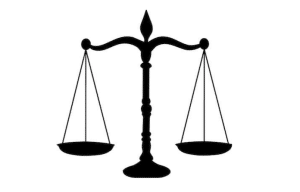Getting smart on COVID
(Note: This article is part of an ongoing series examining common misconceptions about COVID-19.)
With the Delta variant ensuring COVID-19 maintains its place at the top of Americans’ concerns, it can be hard not to get caught up in the various misconceptions associated with the disease. Well over a year into the pandemic, this does not seem to be changing anytime soon.
This article addresses some of the most widely-circulated claims we have seen at the Republic-Times.
Claim: Schools, or anybody really, cannot ask a parent for their child’s COVID-19 vaccination status without violating HIPAA.
It’s not hard to see why so many believe HIPAA, the Health Insurance Portability and Accountability Act, somehow prevents one from asking if another has gotten vaccinated, especially considering people of all different professions are spouting this misinformation.
A few weeks ago, U.S. Rep. Marjorie Taylor Greene (R-Georgia) proclaimed “You see with HIPAA rights we don’t have to reveal our medical records and that also includes our vaccination records,” after a reporter asked her if she had been vaccinated. Dallas Cowboys quarterback Dak Prescott said “I think that’s HIPAA” when asked the same question.
Well, they are wrong.
“HIPAA does not make certain information completely private,” Robert Gatter, a Saint Louis School of Law-Center for Health Law Studies explained. “It only applies to health care providers who are disclosing information and it also does not apply to asking for information. To ask for information that might be covered by HIPAA is not itself a violation of HIPAA. So, asking the question is not a violation of HIPAA, and asking parents to hand over information about their kid’s vaccination status also would not be a violation of HIPAA.”
This same principle applies to Greene and Prescott’s situations when reporters asked them if they were vaccinated. If one voluntarily gives information pertaining to their personal health records, it is not a HIPAA violation. Merely asking for such information is not a HIPAA violation.
However, if the journalist were to call Greene or Prescott’s physician and the doctor were to release their vaccination records to the journalist, the doctor would be violating HIPAA, as they did not obtain consent to share this information.
Claim: Because COVID-19 vaccinations are under emergency use, entities cannot require vaccinations as a condition of entry, or employment.
“There’s nothing categorical about the emergency use authorization that makes it illegal to require (a vaccine),” Gatter said. “It has made some policy makers hesitant, but frankly, they would have been hesitant no matter what.”
In fact, Gatter shared being vaccinated is a condition of his employment at SLU. Universities are not the only ones requiring employees to be vaccinated. Perhaps one of the most talked about announcements came last week when the U.S. Department of Veterans Affairs became the first federal agency to require employees to be vaccinated. It specified its frontline workers must be inoculated in the next two months.
Claim: Since Illinois did not reinstate its mask mandate, businesses cannot bar me from entry if I do not mask up.
Just because the state didn’t set a mandate does not mean businesses cannot put extra precautions in place if they feel it’s necessary, Monroe County Health Department Administrator John Wagner said.
“Private businesses can set their own rules for people to enter,” Wagner said. “We’ve seen this before; the simplest one is when high-end restaurants require a coat and tie, (and) that’s been around for 100 years. So, private businesses can set their own guidelines.”
However, Wagner noted if a mask mandate is issued, individual businesses do not get to make their own exception to the rule.
Claim: If I stay masked, I don’t need to get vaccinated.
Not true. In the rare cases that one contracts COVID-19 after being vaccinated, vaccinations ensure they will not fall seriously ill.
Wagner said approximately over 99 percent of individuals hospitalized nationwide have not been vaccinated. Of those who were vaccinated and hospitalized, they had severe underlying medical conditions, Wagner said.
As of press time, Monroe County’s four COVID-related active hospitalizations were all unvaccinated, Wagner noted.
“Get vaccinated,” Wagner urged. “The last thing you want to do is be sitting in a hospital bed, sick, maybe getting hooked up to a ventilator going ‘Man, I should have gotten vaccinated.’ We can mask all we want, and you can put a mask on as many people as you want, but … they’re surgical masks and they’re not made for viruses, so they’re not real effective. It was the best thing we had when we didn’t have a vaccine. Now we have a vaccine – go out and get a vaccine!”
The Monroe County Health Department is hosting a COVID-19 vaccine clinic from 9-11:30 a.m. this Thursday, Aug. 5, at their office, 1315 Jamie Lane, Waterloo. Appointments are required and can be scheduled by calling or texting 618-340-4819 or 618-612-6404 between 8 a.m. and 4:30 p.m. The Moderna, Pfizer and Johnson & Johnson vaccines will all be available.
Ages 12 and up can get the Pfizer vaccine. Ages 18 and up are eligible for the Moderna and Johnson & Johnson vaccines.
Another COVID vaccine clinic is set for 4-6:30 p.m. Thursday, Aug. 19 at the health department office.
As of Wednesday, 48.01 percent (16,485 residents) of Monroe County is fully vaccinated.






